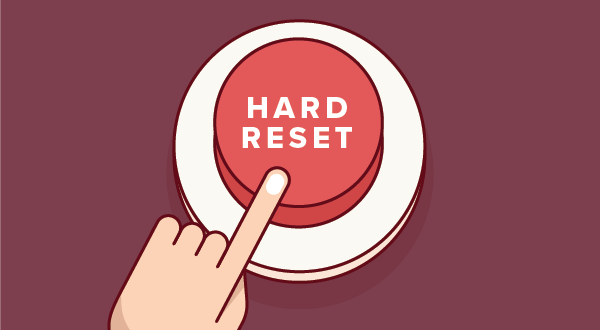The Startups Team

Intro to using experts to validate your startup ideas
Now that we know there is an opportunity in the market for our startup idea, we want to get some expert advice on how to approach that problem, target market, and industry.
Think of this phase as asking your college professor what the answers to the idea validation test are before you ever start the course.
In almost every case there are experts out there that know many of the answers you're looking for and are willing to share that information with you.
The challenge is to find the right experts and present them with very specific questions about your business idea, and in return get highly specific feedback.
Their feedback can help shortcut the market validation process, market research, evaluate your product idea, and identify problems with the business model or product market fit.
From there, you also need to be able to evaluate the feedback you've gotten objectively. Many founders accept expert advice wholesale, which is problematic as even experts can be wrong with their analysis, or improperly contextualize it to your business idea, or target audience.
Validating the expert advice you receive is a critical step in the process as you validate your startup idea.
Key Takeaway
Identify credible experts and get critical feedback about the viability of your startup idea.
We’re going to approach this in 3 steps:
ONE Expert Selection

We’re going to determine which aspects of your concept require expert input and then find the ideal experts who can weigh in on those particular points.
Some experts may have broad contextual expertise in your target market, or perhaps they have specific expertise in acquiring potential customers from your target audience.
Perhaps they've conducted major market research for a similar business idea or former startup company, which you can lean on to validate your startup idea.
TWO Key Questions

We need to make the most of our time with experts so we’re going to narrow our question set into just a few highly pointed questions that can get us the best possible direction for our startup idea validation efforts.
These aren't brainstorming sessions. You shouldn't enter into the conversation without knowing specifically what answers you are seeking. These aren't general information sessions, they should be extremely focused on one or two of the assumptions that need validation.
Before determining WHO you are going to talk to, you need to determine what the most important aspects of the startup idea require validation.
This isn't to say that you won't tackle others, but we need to prioritize them based on the impact they'll have on moving the startup idea forward. The order of operations matters here.
No need to validate that there are hundreds of millions of potential customers if you haven't validated that your product solves a problem for your ideal customer.
Getting the right feedback in the right order has a major impact on the success of the startup.
THREE Feeback Analysis
Last, we're going to compare the feedback to see if there are any patterns we can react to in order to refine our business model. We're looking for root causes for success or failure in the future of the startup.

FOOD FOR THOUGHT
Consider you want to create a company that measures caloric intake. To create a piece of wearable hardware that can measure caloric intake would require the ability to measure blood glucose levels.
At this point, the only way to measure blood glucose is by collecting a tiny blood sample. Perhaps, you chat with someone who works in the R&D department at a Biotech company and the feedback from the expert indicates that “several very large biotech companies are trying to develop a method for “bloodless” monitoring of glucose levels.”
You ask — “what is preventing the technology from being commercialized?” And the person responds with — “The bloodless method creates a very large technical hurdle that we haven’t figured out yet.”
You may be asking yourself, “if multi-billion dollar Biotech companies haven’t figured this out— how can I?” Maybe they are distracted building products they deem more important. Maybe they don’t have your expertise.
Maybe it is actually a really tough problem to solve. Maybe it's reliant on future technologies.
Again — this should not deter you, but it certainly requires you to rethink and reconsider your ideas:
-How can you pull this off?
-What does your startup have that they don’t? What resources would you need to make this happen?
-Is there a different method or perspective or lens that has not been considered?
-Are there similar technologies being used in other industries that could potentially solve this if applied to this industry?
Sometimes the best ideas are not always new ideas.
Great ideas may simply be a better version of an existing idea or a different application of existing technology that is used elsewhere. Maybe you can be the first to connect the dots correctly or in the most efficient manner with your startup.
Step 1: Expert Selection

Not all experts are created equal - a fact that goes heavily overlooked by rookie Founders. Your uncle that made millions in real estate may know a lot about how his business works, but isn’t going to be the right person to question the feasibility of your social mobile app.
In this step, we’re going to create a profile of who the ideal experts might be and then determine where to find them.
The experts we identify are typically:
-Subject Matter Experts
-Expert Founders
-Investors
Subject Matter Experts.

Your business concept may have lots of moving parts that require different expertise, from writing code to acquiring customers to managing vendor relationships.
Depending on the hurdles we uncover in the Research Plan Phase, we will want to identify subject matter experts who can give us a clear indication or data as to how challenging each facet of our startups may be.
Expert Founders.

Other Startup Founders of similar businesses are a wealth of knowledge, and as it happens, they tend to love helping other aspiring Founders!
There’s no better way to learn what to avoid in your new venture than talking to people who have already been there, whether successfully or unsuccessfully.
A good conversation with an expert Founder can also lead to useful introductions that can accelerate your launch plan dramatically.
Investors.
Talking to investors early in the development of your concept isn’t really about raising money (yet) as much as getting the perspective of someone who looks at startup business models for a living.
They can give you useful feedback on how big they envision your market to be or where they may have seen similar startup ideas in the market. You don’t need to be raising capital to get good feedback from startup investors.
Step 2: Key Questions

We’ll want to make great use of our limited time with our experts, so determining exactly what questions we want to get answers to is important. The questions sets will vary based on your particular concept however we tend to develop our questions around four central themes:
Is this feasible?
We want to ask people who know our industry well if the probability of success is reasonable. There will likely be a few major hurdles toward growing this business that we want to identify with as much clarity as possible.
What pitfalls should we avoid?
The value of talking to seasoned experts is that they can tell you what pitfalls to avoid altogether. We want to list each of the most common problems these experts identify and build a plan for avoiding a similar fate when we launch our startups.
Often the difference between a successful startup and a failed startup, is how many startups fail to learn from the historical failures of others.
Who else should we be talking to?
The likelihood that the first few experts you identify are the single most knowledgeable people on this topic may be low.
Therefore we want to focus on gaining introductions to experts who may have even deeper insights into our market problems. This could mean asking for other resources as well, which may include books, blogs, market data, or people.
What are we not asking?
We can only formulate a question set based on what we know. Early into our discovery, we will want to get help from experts to expand our base of questions out even further, creating more detailed and focused questions, from which we derive more value.
Questions should be tailored to each expert and their subject matter expertise with the intent of getting actionable feedback from them.
We are also attempting to garner as much detail and insight as possible about our startup ideas themselves before we move on to the next phase of market validation which involves talking to customers about our value proposition, conducting focus groups, etc.
Step 3: Analysis of Results

The results of our expert interviews will likely take you from “this is the best idea ever!” to “this is the worst idea and you should do literally anything else with your time!”
Remember that the experts are here to give you guidance toward answers, not the final decision as to whether we pursue this idea at all. The determination to proceed with the business is ours and our co-founders.
Did we hit a hard stop or reset?

Sometimes the interviews will yield an answer that lets you know that the idea in its current form just isn’t possible (for example, if a lawyer told you it wasn’t legal). In this case, we may be reverting back to the research phase and we will pursue experts again later.
What was the most consistent opportunity?
As you interviewed experts, which aspect of your new product created the most obvious benefit or opportunity? We’ll want to explore that with customers to make sure they concur.
Is it time to talk to our first customers?
If we feel the feedback we’ve received gives us a reasonable indication that this concept is feasible, and we don’t need to do more digging, it’s time to talk to customers, and then build a minimum viable product for our market.
Weighing Expert Interviews
In addition to evaluating the answers we get, we’ll also want to take a look at how well the experts themselves served us as sources. Sometimes a highly qualified expert can offer a poor interview experience in which case we may need to revisit some discovery with more experts in the market.
Getting a Second Opinion
We may also want to get second opinions on the advice we got if it feels too off base. For example, if a single investor we spoke to says “this startup will never get funded” we may want to corroborate that with 1 or 2 others to make sure it’s not just a single bias. A single data point can easily lead to false positives or false negatives. We never want to hinge the future of our startups on unreliable data. Anywhere we can validate, we should validate.
Summary
Expert feedback gives us a valuable opportunity to walk away with a much clearer picture of what it would take to actually pull off our idea compared to when we first went in, and that in turn causes us to gain confidence to move forward with market validation.
Now that we’ve identified credible industry experts, engaged in meaningful conversations with them, and analyzed our findings, we should know fairly definitely which aspects of our idea to pursue, and which need a bit of rethinking, retooling, or potential scrapping.
Many successful products started off as bad ideas, but with the help of experts, other founders, investors, and other people who have the expertise that we lack at the early startup idea stage became products with real interest from real customers.
If all the feedback we've gathered tells us that our idea is still viable we can begin narrowing down our focus on making sure we’re building the right product for our customers. How do we do that? By asking them!
Find this article helpful?
This is just a small sample! Register to unlock our in-depth courses, hundreds of video courses, and a library of playbooks and articles to grow your startup fast. Let us Let us show you!
Submission confirms agreement to our Terms of Service and Privacy Policy.
Already a member? Login
No comments yet.
Start a Membership to join the discussion.
Already a member? Login